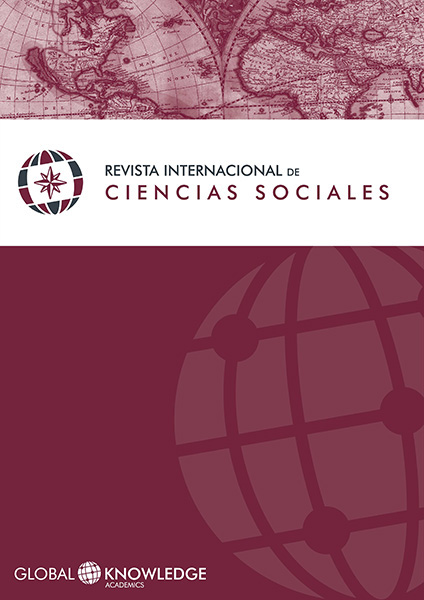Design for Learning Activities in a Specialised Language with Opensim
DOI:
https://doi.org/10.37467/gka-revsocial.v1.1206Keywords:
Virtual Worlds, French for Specific Purposes, Self-identityAbstract
The use of virtual platforms in foreign language teaching has experienced a boost in recent years, although little has been said about its usefulness as an educational tool. This paper presents the experience gained with third-year students of Tourism in the learning of French for Specific Purposes, through the use of OpenSim. The teaching prototype, which is part of the Abant Project (Analysis of avatar behaviour based on knowledge integration, Ministry of Science and Innovation, TIN2010- 19872/TSI), aims to reinforce the French vocabulary and syntactic structures typically found in airportrelated conversations. I will elaborate on the teaching strategies used for individual and collaborative learning and I will address the advantages of using virtual worlds, the great asset being the student projecting themselves in an avatar and their self-perception, as well as its many disadvantages, from technical issues (e. g. significant investment of time in construction and development of the sim) to didactic aspects (e. g. the student perceives the world primarily as a social network). Teachers are confronted with a new form of teaching which they sense to be useful, but they need to succeed in making the conception of the process of language acquisition both adapt to and go beyond the limitations imposed by platforms.
Downloads
Global Statistics ℹ️
|
359
Views
|
309
Downloads
|
|
668
Total
|
|
References
Barrera Linares, L. (2007). Internet y la necesidad de una nueva teoría psicolingüística. Enunciación 0 (13), pp. 164-172. DOI: https://doi.org/10.14483/22486798.1271
Brumfit, C. & Johnson, K. (1971). The Communicative Approach to Language Teaching, Oxford: O.U. Press.
Donlinger, M. J. (2007). Educational video game design: A review of the literature. Journal of Applied Educational Technology, 4, pp. 21-31.
Garrido Iñigo, P. (2012). Second Life en la enseñanza del Francés lengua extranjera en la Universidad, Revista Thèleme, Vol. 27, Madrid: Editorial Complutense, pp. 161-174. DOI: https://doi.org/10.5209/rev_THEL.2012.v27.38930
Goffman, E. (1963). Behaviour in Public Places. Nueva York: The Free Press.
Goffman, E. (1967). Interaction Ritual - Essays on Face-to-Face Behavior. Nueva York: Anchor Books.
Hays, R. T. (2005). The Effectiviness of Instrucional Games: A Literature Review and Discussion. Technical Report. DOI: https://doi.org/10.21236/ADA441935
Lemos, A. (1994). Les communautés virtuelles. Société , 45, París: Dunod, pp. 253-261.
Lévy, P. (2007). Cibercultura. La cultura de la sociedad digital. Barcelona: Anthropos, Editorial del Hombre.
Marcotte, J.F. (1997). Les communautés virtuelles. Disponible en http://jfm.ovh.org/communautesvirtuelles/
Rheingold, H. (1998). The virtuel community. Disponible en http://www.rheingold.com/vc/book/
Rheingold, H. (1995). Les communautés virtuelles. Autoroutes de l’information : pour le meilleur et pour le pire ? París: Addison-Wesley.
Schutzenberger, A. (1975). Introduction au jeu de role. Toulouse: Privat.
Strauss, A. (1997). Miroirs et masques. París: Métaillé.
Vigotsky, L. S. (1979). El desarrollo de los procesos psíquicos superiores. Barcelona: Grijalbo.
Williams, M. & Burden, R. (1997). Psychology for Language Teachers: A Social Constructivist Approach. Cambridge: Cambridge University Press.
Downloads
Published
How to Cite
Issue
Section
License
Those authors who publish in this journal accept the following terms:
-
Authors retain copyright.
-
Authors transfer to the journal the right of first publication. The journal also owns the publishing rights.
-
All published contents are governed by an Attribution-NoDerivatives 4.0 International License.
Access the informative version and legal text of the license. By virtue of this, third parties are allowed to use what is published as long as they mention the authorship of the work and the first publication in this journal. If you transform the material, you may not distribute the modified work. -
Authors may make other independent and additional contractual arrangements for non-exclusive distribution of the version of the article published in this journal (e.g., inclusion in an institutional repository or publication in a book) as long as they clearly indicate that the work was first published in this journal.
- Authors are allowed and recommended to publish their work on the Internet (for example on institutional and personal websites), following the publication of, and referencing the journal, as this could lead to constructive exchanges and a more extensive and quick circulation of published works (see The Effect of Open Access).













